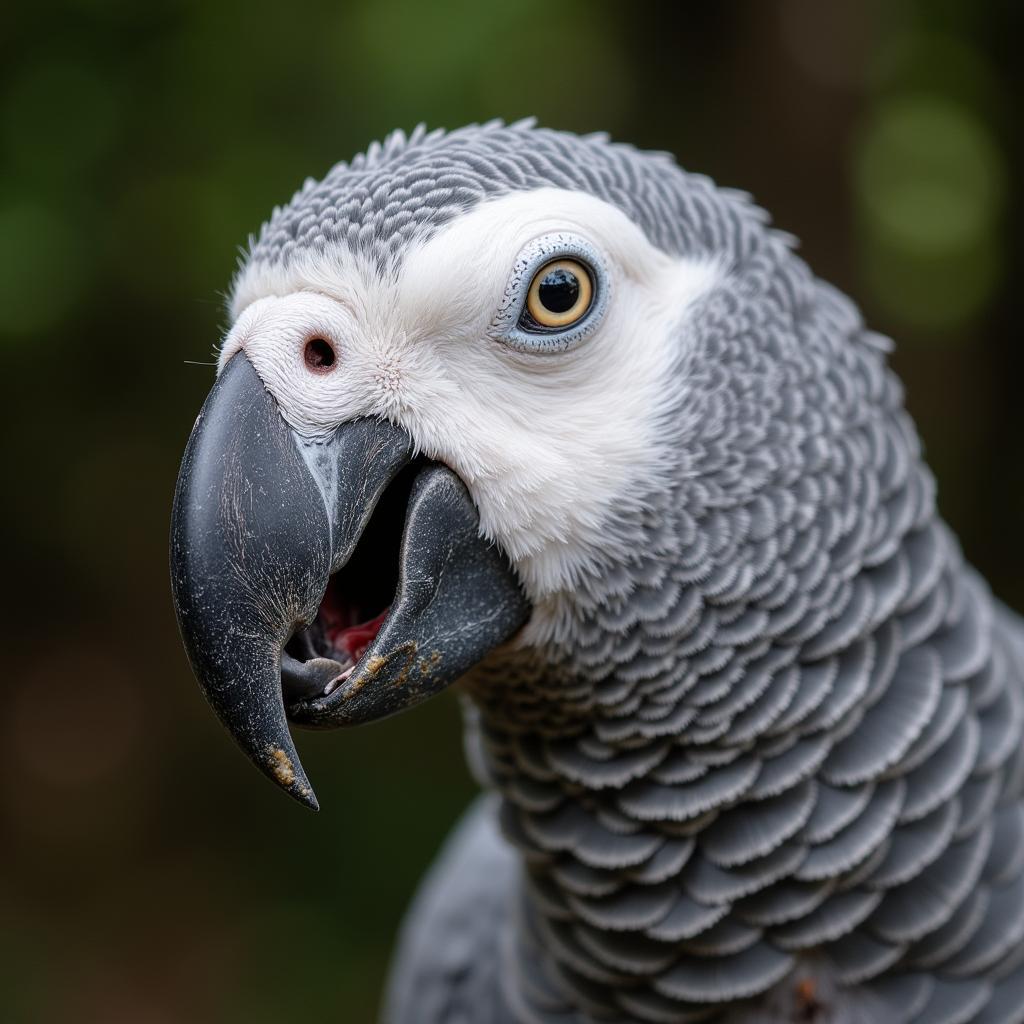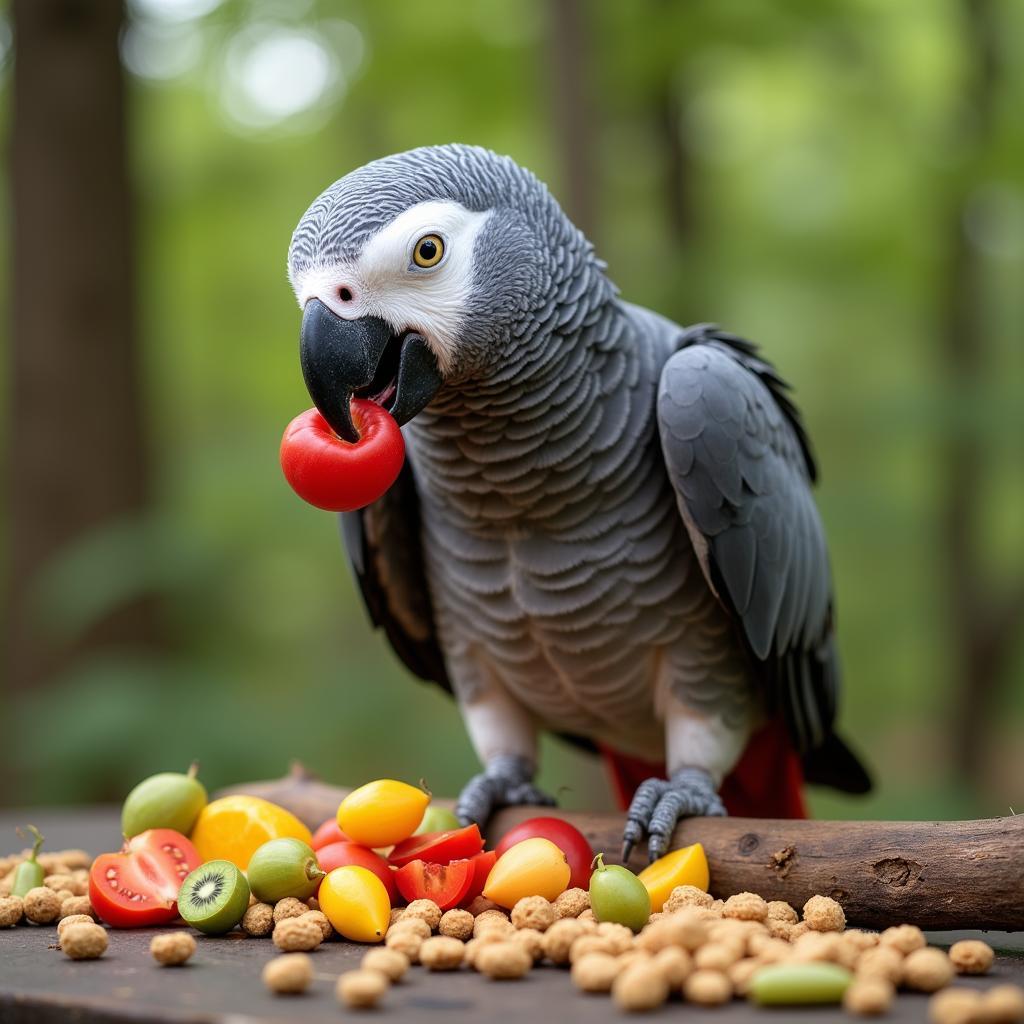Understanding African Grey Parrot Diseases: A Guide to Keeping Your Feathered Friend Healthy
African grey parrots are intelligent, social creatures that bring joy to countless homes. These remarkable birds captivate us with their ability to mimic speech and form strong bonds with their human companions. However, owning an African grey parrot also comes with the responsibility of understanding and addressing their specific health needs. Just like any living being, African grey parrots are susceptible to various diseases, some more serious than others. Recognizing the signs and symptoms of these ailments is crucial for ensuring your feathered friend lives a long, healthy life.
Common Health Problems in African Grey Parrots
African grey parrots can experience a range of health issues, from minor infections to more serious conditions. Here are some of the most frequently encountered problems:
Respiratory Infections
Like humans, African greys can suffer from respiratory infections caused by bacteria, viruses, or fungi.
Symptoms:
- Difficulty breathing, wheezing, or gasping for air
- Discharge from the nostrils or eyes
- Loss of appetite and lethargy
- Tail bobbing, an indication of respiratory distress
Causes:
- Poor ventilation
- Cold drafts
- Exposure to other sick birds
 African Grey Parrot Showing Signs of Respiratory Distress
African Grey Parrot Showing Signs of Respiratory Distress
Psittacosis (Parrot Fever)
Psittacosis is a bacterial infection that can affect all parrot species, including African greys. It can be transmitted to humans.
Symptoms in Parrots:
- Lethargy and weakness
- Loss of appetite
- Greenish droppings
- Difficulty breathing
- Eye discharge
Symptoms in Humans:
- Flu-like symptoms
- Fever
- Headache
- Cough
Causes:
- Contact with infected birds or contaminated surfaces
- Inhaling dust from contaminated bird droppings
Prevention:
- Maintaining good hygiene in the bird’s environment
- Avoiding contact with birds suspected of having psittacosis
Psittacine Beak and Feather Disease (PBFD)
PBFD is a serious, contagious viral disease that affects parrots, particularly young birds. It can suppress the immune system and impact feather and beak development.
Symptoms:
- Abnormal feather growth, including loss of feathers
- Beaks that are deformed, soft, or easily breakable
- Immunodeficiency, making them more susceptible to other infections
Causes:
- A virus that is spread through contact with infected birds, their feathers, or droppings
Feather Plucking (Feather Destructive Behavior)
Feather plucking, while not a disease itself, is a common behavioral problem in African grey parrots.
Symptoms:
- The parrot plucks its own feathers, often to the point of bare skin
- Skin irritation or self-inflicted injuries
Causes:
- Stress
- Boredom
- Lack of environmental enrichment
- Underlying medical conditions
Nutritional Deficiencies
African greys require a varied and balanced diet to thrive. Nutritional deficiencies can lead to various health problems.
Symptoms:
- Poor feather quality
- Weakness
- Susceptibility to infections
- Metabolic bone disease (calcium deficiency)
Causes:
- A diet consisting primarily of seeds
- Lack of fresh fruits, vegetables, and high-quality pellets
 African Grey Parrot Enjoying a Nutritious Meal
African Grey Parrot Enjoying a Nutritious Meal
Recognizing When Your Parrot is Sick
As a responsible African grey parrot owner, it’s vital to recognize the signs of illness in your bird.
Signs of Illness:
- Changes in appetite (eating significantly more or less than usual)
- Changes in droppings (color, consistency, frequency)
- Lethargy or weakness
- Fluffed-up feathers
- Discharge from the eyes or nostrils
- Difficulty breathing
- Changes in behavior (aggression, fearfulness)
If you observe any of these signs, consult an avian veterinarian immediately. Early detection and treatment greatly improve the chances of a positive outcome.
Proactive Steps to Prevent Diseases in African Grey Parrots
Prevention is always better than cure. By taking proactive measures, you can significantly reduce the risk of your African grey parrot developing health problems.
Essential Preventive Measures:
- Provide a spacious and stimulating environment: A spacious cage with plenty of toys, perches, and opportunities for enrichment will help prevent boredom and stress, reducing the risk of behavioral problems like feather plucking.
- Offer a balanced and varied diet: A diet rich in fresh fruits, vegetables, high-quality pellets, and a small amount of healthy seeds is crucial for maintaining your parrot’s health and preventing nutritional deficiencies.
- Schedule regular veterinary check-ups: Regular check-ups with an avian veterinarian will help detect and address any potential health problems early on. Your vet can also advise you on vaccinations, parasite control, and other preventive measures.
- Practice good hygiene: Maintaining a clean cage and fresh water supply is essential for preventing the spread of infections. Wash your hands thoroughly before and after handling your bird or its belongings.
The Importance of Seeking Veterinary Care
If you suspect your African grey parrot is unwell, don’t delay seeking professional veterinary care. An avian veterinarian has the specialized knowledge and experience to diagnose and treat parrots effectively.
Remember, time is of the essence when it comes to parrot health. Early intervention and treatment can make a significant difference in your feathered companion’s well-being and chances of recovery.
FAQ
Q: How can I tell if my African grey parrot is stressed?
A: Look for changes in behavior such as feather plucking, excessive vocalization, aggression, or withdrawal.
Q: What are the signs of a healthy African grey parrot?
A: A healthy African grey has bright eyes, clean feathers, a good appetite, normal droppings, and is active and alert.
Q: How often should I take my African grey to the vet?
A: It’s recommended to schedule annual check-ups for your African grey parrot, even if they seem healthy.
Q: Can I catch a disease from my African grey parrot?
A: Yes, some parrot diseases, such as psittacosis, are zoonotic, meaning they can be transmitted from animals to humans.
Q: What is the average lifespan of an African grey parrot?
A: With proper care, African grey parrots can live for 50 years or more.
You might also be interested in:
For any further inquiries or assistance, please feel free to contact us:
Phone Number: +255768904061
Email: kaka.mag@gmail.com
Address: Mbarali DC Mawindi, Kangaga, Tanzania.
We have a dedicated customer support team available 24/7 to assist you.




